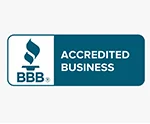Navigating Canada’s workforce as an international student can be a daunting task, particularly when seeking a Post-Graduation Work Permit (PGWP). The PGWP is a crucial step for those who wish to gain work experience in Canada after completing their studies. However, the application process can be intricate and time-consuming, with numerous requirements and regulations to follow. In this article, we will demystify the PGWP application process, offering a comprehensive guide on successfully maneuvering the Canadian workforce as an international student. Whether you are just commencing your studies in Canada or nearing your program’s end, this essay will equip you with the information you need to confidently apply for a PGWP and begin a successful career in Canada. So, sit back with a cup of coffee and get ready to delve into the intricacies of the PGWP application process.
The Post-Graduation Work Permit (PGWP) holds immense value for international students in Canada. It provides them with the opportunity to gain valuable work experience and establish their careers in the Canadian workforce. After completing their studies, students can apply for a PGWP, which allows them to work in Canada for up to three years. Having a PGWP not only exposes students to the Canadian work culture but also enhances their chances of obtaining permanent residency in Canada, as it allows them to gain hands-on experience in their field of study, making them more competitive in the job market.
The Post-Graduation Work Permit (PGWP) offers international students the flexibility to work in any occupation and location within Canada, emphasizing its importance in shaping education and career paths. This article explores the PGWP application process, eligibility criteria, and necessary documents, providing a step-by-step guide to unlock a promising future in Canada.
Eligibility Criteria Obtaining a Post-Graduation Work Permit (PGWP) hinges on meeting the eligibility criteria established by the Government of Canada. Compliance with these criteria is paramount for a successful application.
Firstly, completing a full-time program of study at a designated learning institution (DLI) in Canada is mandatory. Notably, not all programs or institutions qualify for the PGWP, so it’s crucial to confirm your institution’s inclusion on the government’s list of approved DLIs.
Secondly, the PGWP’s duration correlates with the length of your study program. Programs completed in under eight months might not make you eligible for a PGWP. However, for programs lasting eight months or longer, you may qualify for a work permit equal to your program’s length, up to a maximum of three years. Understanding these criteria is fundamental for a smooth and successful PGWP application process.
Applying for the PGWP must occur within 180 days of program completion to ensure a smooth process devoid of complications or delays.
With a grasp of the PGWP eligibility criteria, the next crucial step is preparing the necessary documentation for a seamless and successful application.
Firstly, your letter of completion or transcript from your designated learning institution (DLI) in Canada is essential, serving as evidence of program completion.
Additionally, you’ll require a valid passport or travel document, ensuring its validity throughout your intended stay in Canada.
Another vital document is your study permit, affirming your authorization to study in Canada and your compliance with Canadian immigration laws. It’s important to have a valid study permit when applying for the PGWP.
You’ll also require two recent passport-sized photos meeting Canadian government specifications. Ensure compliance when taking these photos.
Additionally, you must provide proof of payment for the application fees. Current PGWP application fees can be found on the official Immigration, Refugees and Citizenship Canada (IRCC) website.
In the following section, we will guide you through the step-by-step application process.
Now, with all necessary documents in hand, you can proceed to submit your PGWP application. The process differs based on your choice to apply online or via paper application.
Irrespective of your chosen application method, it’s essential to meticulously review the requirements and checklist provided by IRCC to ensure all necessary documents are included. Missing or incomplete information can lead to application delays or even rejection.
Once your application, complete with the required documents, is ready, submit it according to IRCC’s instructions. Retain a copy for your records and note any applicable application fees.
Following the submission of your PGWP application, the subsequent step is to patiently await the completion of the processing time. Processing duration can vary depending on factors like the volume of applications received by IRCC, the complexity of your case, and the time of year.
On average, PGWP application processing takes about 4 to 6 months. However, it’s important to note that this is an estimate, and in some cases, it may take longer. To access the most up-to-date information on processing times, it’s advisable to refer to the IRCC website or contact their helpline.
Throughout the processing period, you may be contacted by IRCC for additional documentation or clarification on specific aspects of your application. Promptly responding to their requests is vital to prevent delays.
While awaiting the decision, maintain patience and focus on your transition to the Canadian workforce. Research job opportunities, network with professionals, and stay updated on the job market trends.
Remember, the final decision on your PGWP application is with IRCC. Upon approval, you’ll be notified by email or mail, granting you the PGWP for legal work in Canada.
In case of rejection, don’t lose hope. Consult an immigration lawyer or consultant for options or appeals. The PGWP is one pathway to the Canadian workforce, with other avenues to explore.
Once you’ve secured your Post-Graduation Work Permit (PGWP), delve into the extensive work opportunities for international graduates in Canada. The PGWP offers freedom to work in any occupation and location within the country, broadening your career prospects and experience.
Many recent graduates opt to work in their field of study, applying acquired skills and knowledge to advance their careers. Exploring job opportunities aligned with your education can be a rewarding way to gain practical experience and further your career.
To enhance your job prospects in Canada, be proactive by checking online job boards, attending career fairs, and networking with industry professionals. Another avenue to explore is internships or co-op placements, which can provide valuable work experience and potential job offers.
Consider starting your own business or freelancing, leveraging Canada’s thriving entrepreneurial ecosystem. International graduates may access programs that support entrepreneurship, offering a unique path to career success.
Invest in professional development by taking relevant courses or certifications to enhance your skills and marketability. Seek out workshops, conferences, and online courses that align with your career goals and keep you updated on industry trends.
Tap into available resources as an international graduate, such as career centers at your educational institution and local settlement agencies. They can assist with resume writing, interview preparation, and connecting with potential employers. Networking events and professional associations are also valuable for building industry connections.
Navigating the Canadian workforce as an international graduate may initially seem overwhelming, but with the right approach, you can find success. Stay determined, open-minded, and committed to building your skills and experience. Remember, the PGWP is just the start of your journey in Canada, with numerous opportunities awaiting you.
Apply for your PGWP promptly upon completing your program of study to avoid potential delays or complications due to varying processing times.
Double-check the information provided in your application for accuracy to prevent rejections or delays. Review your application thoroughly, and seek feedback from others to ensure it is complete and error-free before submission.
Maintaining legal status in Canada while your PGWP application is processed is crucial. If your study permit is set to expire before you receive a decision on your PGWP, apply for an extended study permit to stay legally. Failing to do so could jeopardize your PGWP eligibility.
Additionally, stay organized and keep track of your PGWP application’s progress. Retain copies of all documents and correspondence with IRCC to address requests for additional information promptly.
Following these tips increases your chances of a successful PGWP application, paving the way to explore the vast opportunities in the Canadian workforce.
While navigating the PGWP application process may seem daunting, international students can confidently pursue their career goals in Canada with the right knowledge and preparation. Understanding eligibility requirements, submitting a complete and accurate application, and maintaining organization throughout the process enhance the chances of success.
The Post-Graduation Work Permit offers international students valuable work experience in Canada, fostering professional development. It opens doors to various career pathways, contributes to the Canadian workforce, and may even lead to permanent residency.
We hope this article has provided you with a comprehensive understanding of the PGWP application process. Good luck on your journey as you embark on a new chapter in your professional life in Canada!














